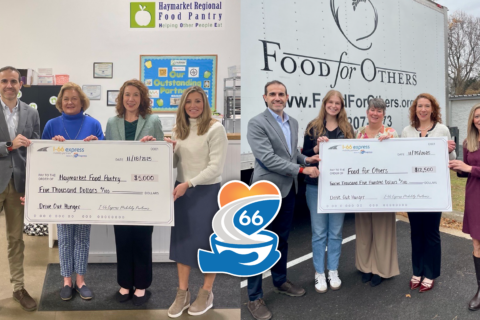This content is sponsored by the Childrens Hospital Association.
The mental health of children and young people is getting increasing attention, amid the social media explosion and in the wake of the pandemic, which contributed to emotional stress and isolation.
Health professionals and policymakers have had an eye on this critical issue for many years, trying to help families cope and get them the mental health resources they need. While some progress has been made, many challenges remain.
Amy Wimpey Knight, the president of Childrens Hospital Association (CHA), Congressman Jamie Raskin, the U.S. representative for Maryland’s 8th District have unique and unifying perspectives on mental health, which they have shared in a discussion for wtop.com.
Knight notes that even before the spread of Covid-19, there were indications of an increasing incidence of mental health conditions in children and young people, though “the pandemic really exacerbated the issue.”
Helping youth in crisis
She points out that children’s hospital emergency rooms are often the destination of last resort for children in a mental health crisis, which places the entire hospital under greater stress. “And the increase that we saw coming out of the pandemic continues today, is an increase in children showing up in crisis,” Knight says, noting suicide ideation and suicide attempts are “an acute exacerbation of mental health challenges.”
As a result, she says CHA, along with the American Academy of Pediatrics (AAP) and American Academy of Child and Adolescent Psychiatry (AACAP) declared a national emergency in 2021 that still persists today.
While hospitals can help stabilize a child in a mental health crisis, access to the right mental health care resources for a child or adolescent are often in other settings and can be exacerbated by a community’s lack of resources.
These might include a shortage of inpatient psychiatric beds, limited intensive outpatient programs or the availability of specialized therapists to treat pediatric patients.
“They [children] often end up spending excessive time, not a couple of hours, sometimes a couple days — and sometimes a couple of weeks — in our emergency rooms waiting to go where they actually can get the specialized mental health care that they need,” Knight says, noting they are still kept safe and every effort is made to treat them while they wait for placement.
The issue is known as “boarding.” Kids end up in hospitals for lengthy periods of time, when they really need to be admitted to a specialized facility or to an appropriate community-based care program.
“Nearly 90 percent of our hospitals have reported an increase in boarding in the past year,” she says.
Too many families must wait for extended periods of time to get the help they need.
Federal resources for youth struggling with mental health
“We have a number of levers that we’re supporting in Congress right now to look at…bolstering that pediatric workforce so we have more providers,” she says, noting it is also important that more providers accept commercial insurance and Medicaid, which often fail to sufficiently reimburse providers for care.
She points out that how providers are reimbursed matters in ensuring access, “so we need to focus on paying appropriately for the care they provide.”
Congressman Raskin has persistently sought to shine a light on the issue of mental health, after the family lost his son Tommy to suicide in 2020.
“When you’ve got a majority of young people talking about depression, anxiety, other mental health symptoms they’re suffering, it’s very hard to stigmatize that anymore,” he says, noting that many lawmakers’ families have been touched by the crisis and there are bipartisan efforts to address it.
Raskin is a co-sponsor of a bill known as the CONNECT Act — Continuity in Necessary Evaluative Crisis Treatment — which is designed to help provide follow-up services for those with mental health issues. .
“We’re looking for different ways of compensating for the shortage of mental health professionals,” he says. “So, nobody falls through the cracks.”
Knight points out that CHA, in partnership with Cardinal Health, is taking part in a national collaborative to prevent youth suicide. It involves 30 children’s hospitals across the country and seeks to create intervention programs based on data-driven research.
“Our hope is to share those learnings to communities throughout the United States, and really make a difference,” she says, noting CHA has more than 200 members.
The impact of having challenging conversations
Raskin says it is important that families dealing with a loved one who has depression or other mental health issues be able to openly discuss it and address it.
He says that also means being willing to talk about suicide.
“I think it’s such a dread taboo subject for so many families that we think that if we mentioned the word, it’s going to somehow conjure the thing into being,” he says. “It’s better for us as a society to be talking about it, so we don’t lose anybody else.”
Raskin was involved in legislation that created the 988 suicide and crisis lifeline, which provides free and confidential support.
Knight says there has also been bipartisan support for the Helping Kids Cope Act, which seeks to bolster the pediatric mental health workforce.
Knight and Raskin say they are both encouraged by the fact that members of both parties in Congress understand the need to address the youth mental health crisis and that it is an issue that brings people together.
As for young people themselves, Knight says she is “inspired and hopeful by our next generation of youth because they’re dealing with these issues openly.”
Overall, she is encouraged by the growing attention the issue is getting in Congress, at the federal level, as well as local communities.
“I think we’re seeing [Congress] rise to the occasion on a number of levels,” she says.







